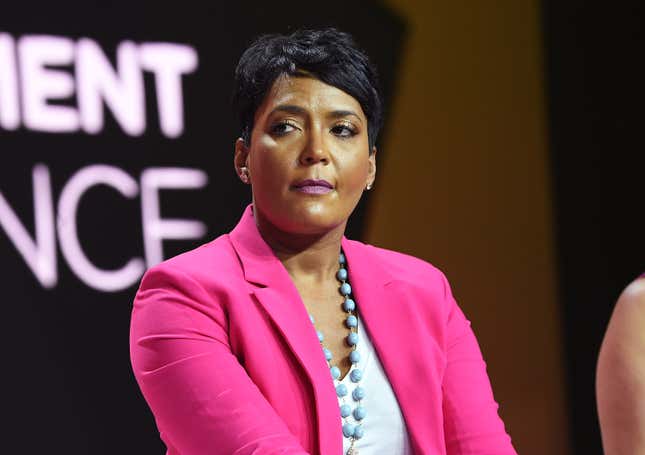
One would think that a governor who was planning to reopen his state during an ongoing pandemic would, at the very least, consult the mayor of the city with the state’s largest population. Apparently, this was not the case for Georgia Gov. Brian Kemp and Atlanta Mayor Keisha Lance Bottoms. Bottoms says she was completely blindsided by Kemp’s Monday announcement that he would be opening some non-essential Georgia businesses starting Friday.
In a Monday night interview with WSB-TV 2, Bottoms made it crystal clear that she had no idea Kemp was going to announce a reopening of businesses and that she doesn’t know what information he’s using for his decisions. Most importantly, despite his plans to maintain strict social distancing guidelines, it’s unclear if it’s a safe time to move forward with his plans to allow businesses such as “gyms, fitness centers, bowling alleys, body art studios, barbers, cosmetologists, hair designers, nail care artists, estheticians, their respective schools and massage therapists to resume operations by Friday as long as they comply with social distancing requirements.”
“I saw the announcement watching Channel 2 like the rest of Georgia,” Bottoms said. “I didn’t know it was coming and obviously the governor is the governor and he certainly has the prerogative to make orders that he deems appropriate. He did not consult with me. I don’t know what the reasoning and data that the governor used to make this decision was, because I have not spoken with him, but I did not know in advance.”
When asked whether she agrees with what Kemp is doing, Bottoms said she doesn’t and reiterated that she doesn’t know what information he has.
“The governor and I have traditionally had a very good working relationship so, with all due respect, I can say I don’t agree with this order,” she said. “But again, I don’t know what the governor is basing this on. To the extent that we’ve had any success with numbers, I would venture to say it’s because we’ve been very aggressive in the actions that we’ve taken. What I know is that we still are not testing asymptomatic and people with mild symptoms, so I don’t think we have a very clear picture of what our real numbers are.”
It’s understandable that the mayor would be wary about trusting Kemp to make bold decisions like this based on whatever information he has since, at the beginning of this month, he revealed that he only just discovered that asymptomatic people could transmit COVID-19—a fact that had been reported on for months.
Meanwhile, Bottoms says that COVID-19 cases are still rising in Georgia.
“As of 7 p.m. today, I believe we had deaths like over 13%, and so our numbers are still going up. Where we’re seeing our numbers really spike are in areas that were slow to close down, like Bibb County. It concerns me when you talk about opening up houses of worship, and you know that our worst outbreak in the state came from two funerals, by and large in Albany, Georgia.”
Speaking of Albany, the mostly black city’s white mayor, Bo Dorough, said he only learned of Kemp’s announcement after one of his aides saw the press conference on the news.
“I’m flabbergasted that the governor would say we can’t take additional precautions to protect our citizens,” Dorough told the Atlanta Journal-Constitution. “This isn’t a mixed signal. It’s a U-turn.”
This brings us to a final point: Kemp is ignoring the devastating impact his decision could have on his state’s black communities.
According to The Guardian, black people represent 32 percent of Georgia’s population but account for an estimated 54 percent of COVID-19 related deaths in the state.
From The Guardian:
African Americans face a higher risk of exposure to the virus, mostly on account of their living in urban areas and being employed in essential industries. Only 20% of black workers reported being eligible to work from home, compared with about 30% of their white counterparts, according to the Economic Policy Institute.
Institutional healthcare inequities exacerbate the death rate. Cuts to Medicaid and Medicare, facility closures and caps on public health insurance plans make African Americans twice as likely to lack health insurance compared with their white counterparts.
Georgia, the US’s eighth largest state, has one of the highest numbers of confirmed cases in its region. More than 700 people have died; the state has one of the slowest testing rates.
Data from Johns Hopkins University showed that cases in Georgia more than doubled in less than two weeks, from 7,300 on 6 April to just over 18,000 by Sunday.
Bottoms said she hopes she’s wrong about Kemp’s decision; otherwise, lives will be put at risk.
“I do hope that I’m wrong and the governor is right. Because if he’s wrong, more people can die.”

